Are you thinking about relocating for a new job opportunity or a transfer within your company? Navigating the process of securing housing assistance can feel overwhelming, but it doesn't have to be! In this article, we'll break down the essential steps and provide a handy letter template to help you request employee transfer housing assistance with ease. So, let's dive in and get you ready for your next big move!
Introduction and employee information
Employee transfer housing assistance can significantly alleviate the stress of relocating. This support typically includes various forms of help, such as temporary accommodations and financial aid, aimed at easing the transition process for employees. For example, an employee named John Smith, who has recently accepted a position at the company's New York office, may require assistance due to the high living costs in Manhattan. The employee's moving date is set for January 15, 2024, with a projected need for housing until February 15, 2024. Providing comprehensive housing assistance ensures that John can settle into his new role without the burden of housing concerns during this critical shift in his career.
Reason for transfer
Employee transfer housing assistance is crucial for facilitating a seamless relocation process. Relocation reasons often include promotions to managerial positions, necessitating closer proximity to headquarters, or departmental shifts owing to organizational restructuring projects. In many cases, transfers may also arise from employee skills matching with specific regional demands, such as tech expansions in Silicon Valley or manufacturing boosts in the Midwest. Additionally, employees may require support navigating the local housing market, often characterized by fluctuating rental prices or home buying challenges, especially in urban centers where demand significantly exceeds supply. Therefore, comprehensive assistance programs are vital, easing the transition and ensuring employees can settle into their new roles without housing-related stressors.
Housing assistance details
Employee transfer housing assistance programs provide critical support to employees relocating to new areas for work assignments. Companies often cover various housing expenses, including temporary accommodations, such as serviced apartments or hotels, with allowances typically ranging from $1,500 to $3,000 per month, depending on the location. Additionally, employees may receive reimbursement for moving expenses, including packing, transport costs, and insurance up to $5,000, allowing for a smoother transition. Some organizations also offer a housing stipend to help offset rental costs in high-demand areas, which can significantly vary based on local market rates, such as in cities like San Francisco or New York. Guidance on location-specific housing options is crucial, ensuring employees are aware of amenities, public transportation access, and community resources during their transition.
Timeline for relocation
Relocating for work can be a complex process for employees, particularly when navigating housing assistance. A well-structured timeline is essential for a smooth transition, starting with securing approval for the transfer within the company guidelines, typically outlined in employee handbooks or HR policies. Allocating time for real estate research in high-demand markets, such as San Francisco or New York City, is critical, often requiring several weeks or months. Once housing options are identified, scheduling viewings and negotiations may take an additional few weeks. Additionally, local regulations, such as lease agreements or homeowners' association rules, must be reviewed, facilitating compliance and ensuring a hassle-free move-in process. Finally, organizing logistics for the physical relocation, including hiring moving companies and setting up utilities, typically spans 2-4 weeks, ensuring that the employee is settled comfortably in the new environment before their official start date in the new role.
Contact information for assistance support
Employee transfer housing assistance can significantly ease the transition process for relocating workers, particularly in regions like Silicon Valley, where housing availability is a critical issue. Providing resources such as dedicated support teams, local real estate agents, and access to temporary accommodations can streamline the relocation experience. Essential contact information should include the relocation coordinator's phone number, email address, and available working hours to ensure that employees receive timely support during their transfer. Additionally, links to local housing services, community resources, and online platforms for housing listings can empower employees to make informed decisions about their new living arrangements.

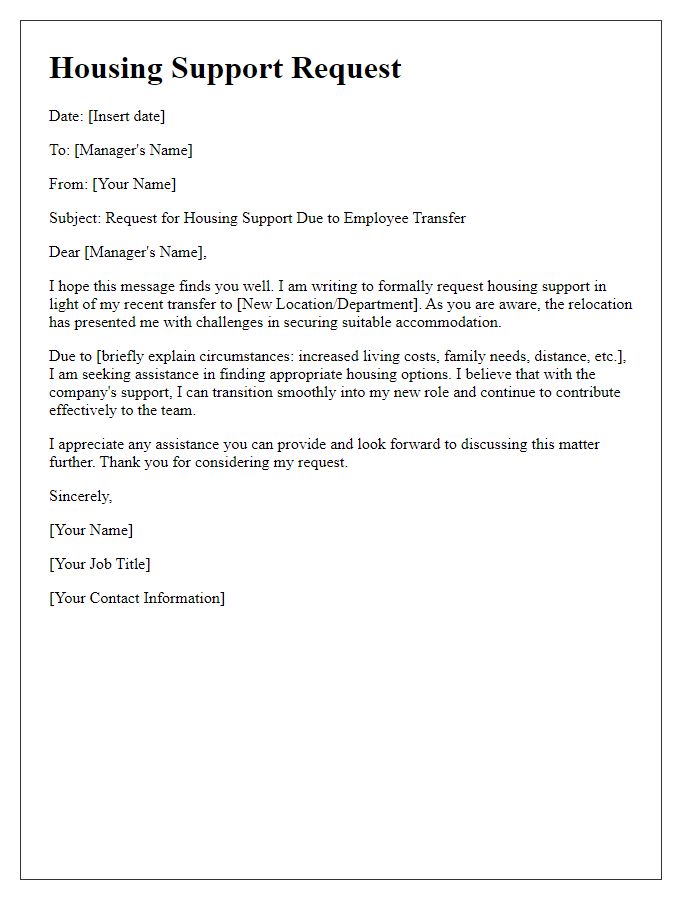
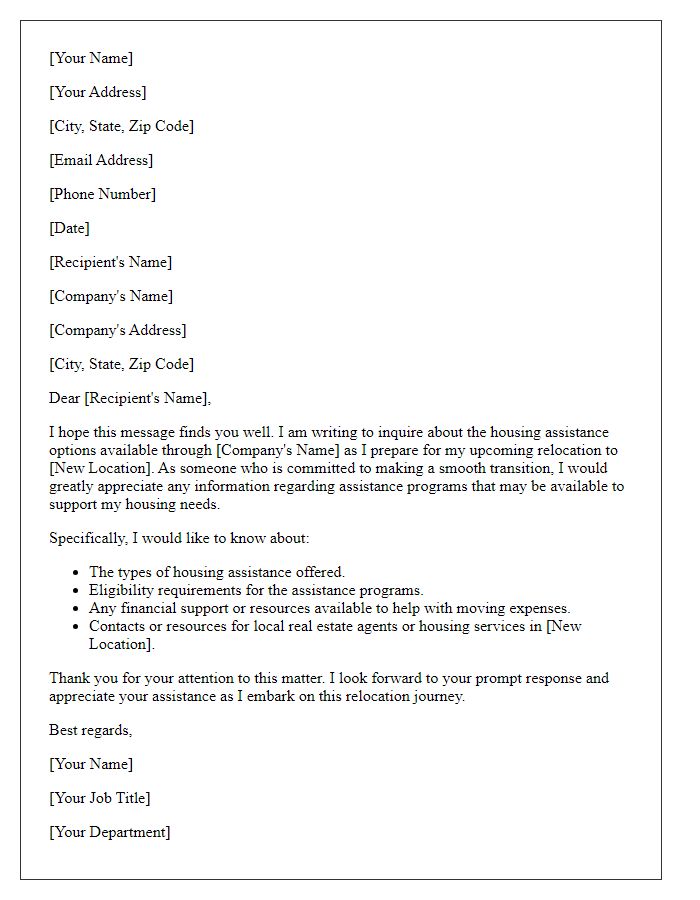

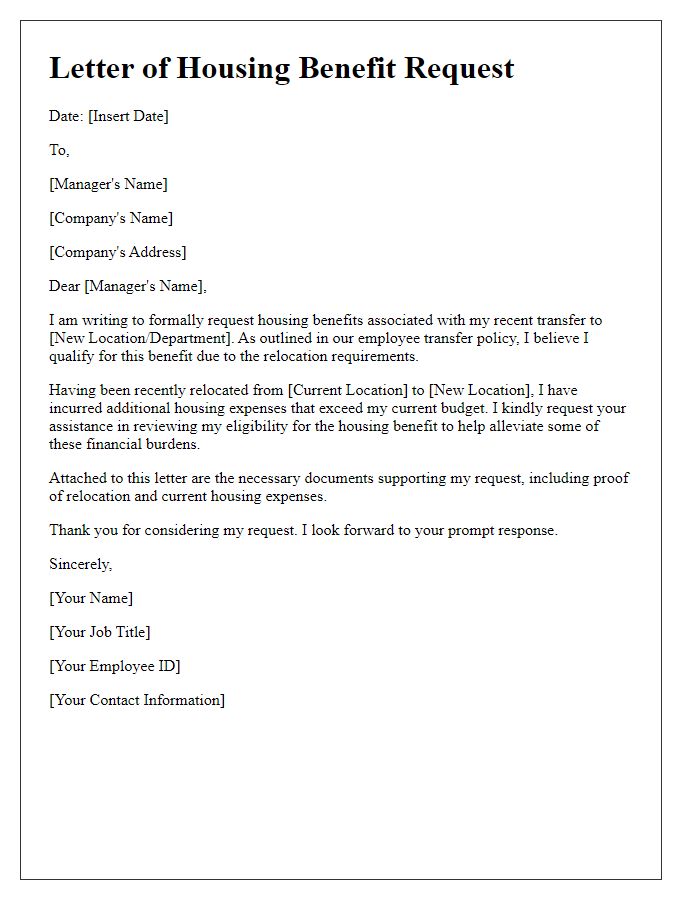
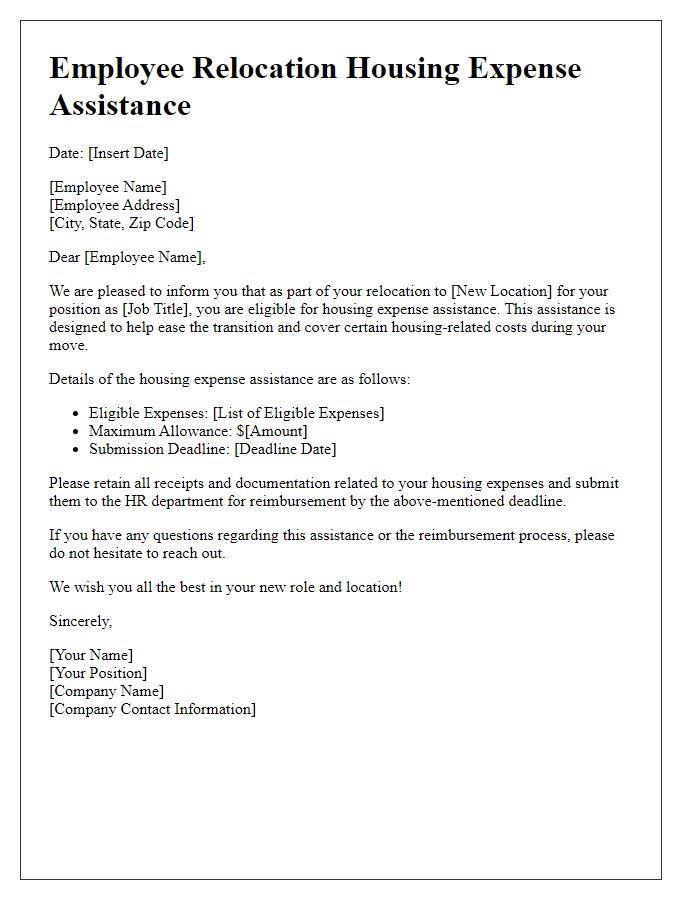
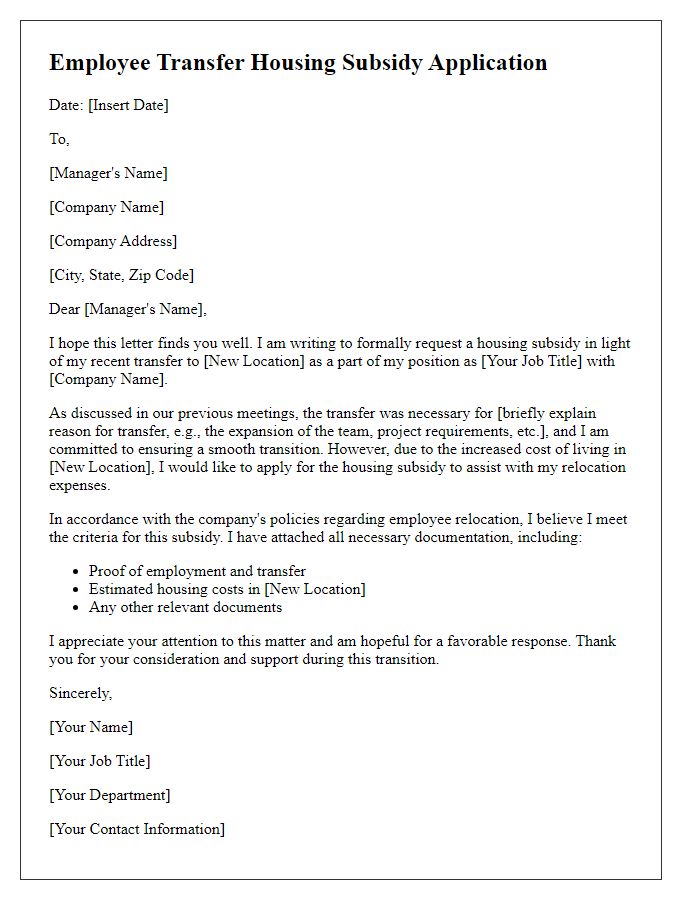

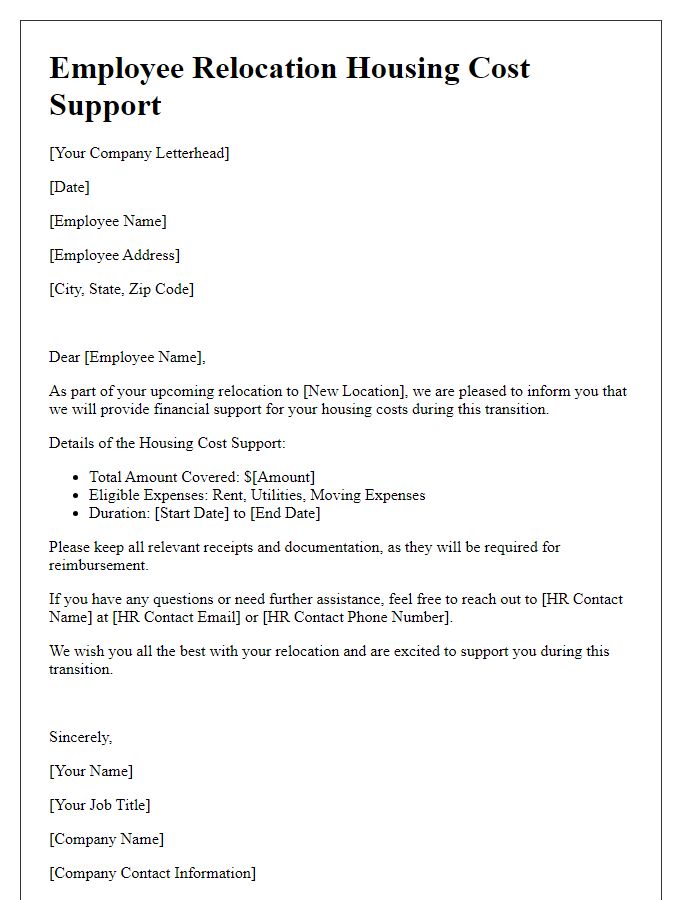
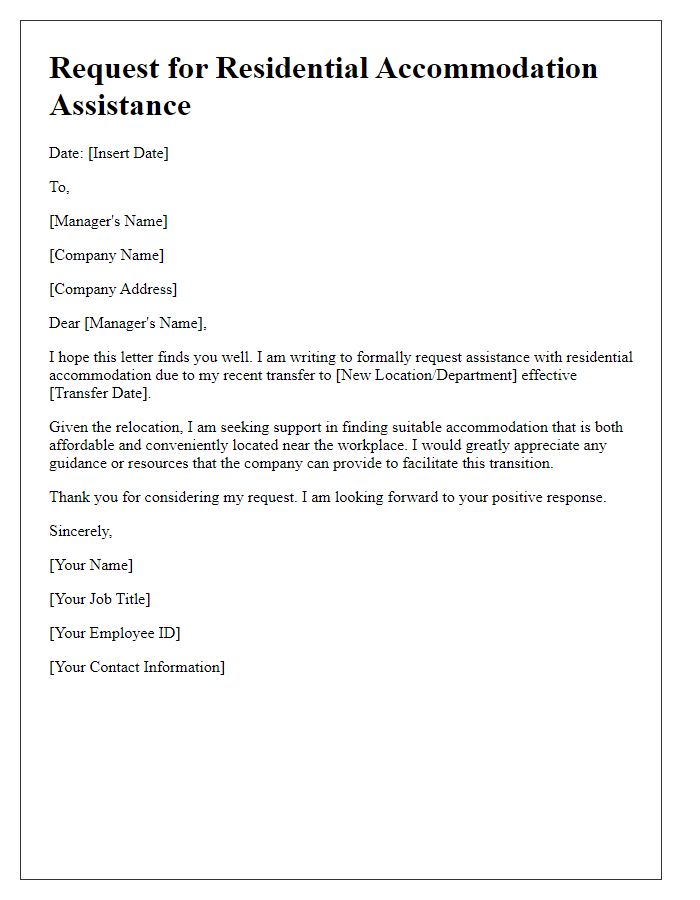


Comments